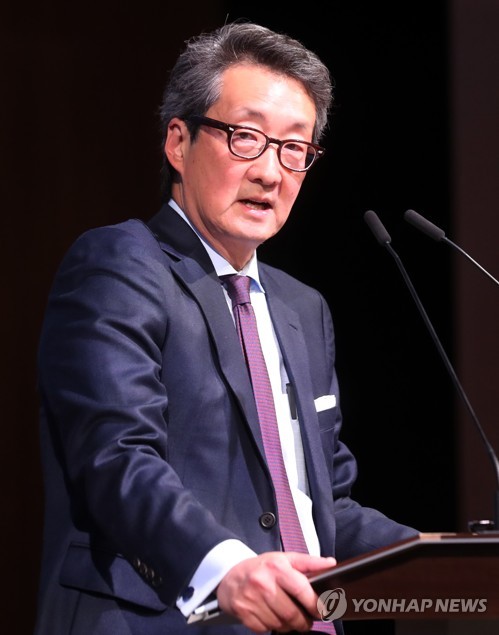- California Assembly OKs highest minimum wage in nation
- S. Korea unveils first graphic cigarette warnings
- US joins with South Korea, Japan in bid to deter North Korea
- LPGA golfer Chun In-gee finally back in action
- S. Korea won’t be top seed in final World Cup qualification round
- US men’s soccer misses 2nd straight Olympics
- US back on track in qualifying with 4-0 win over Guatemala
- High-intensity workout injuries spawn cottage industry
- CDC expands range of Zika mosquitoes into parts of Northeast
- Who knew? ‘The Walking Dead’ is helping families connect
U.S. needs to tackle N.K. human rights, denuclearization together: Victor Cha
WASHINGTON, Sept. 13 (Yonhap) — A former U.S. nuclear negotiator called on the Donald Trump administration Thursday to include the issue of North Korea’s human rights in negotiations over the regime’s nuclear weapons program.
The call by Victor Cha, former deputy head of the U.S. delegation to six-party denuclearization talks with North Korea, comes amid a perceived impasse in negotiations between Washington and Pyongyang to dismantle the regime’s nuclear weapons program.
In prepared remarks for a congressional human rights panel, Cha said the Trump administration is following past U.S. administrations in avoiding the North Korean human rights issue when denuclearization talks are under way.
“When there is no diplomacy on denuclearization taking place with North Korea, we amp up the volume on human rights, support defector testimonies castigating the regime, and support efforts to get outside information into the country,” he said. “But once the negotiations begin, the human rights issue becomes too uncomfortable, and too inconvenient to talk about.”

This file photo shows Victor Cha, former Asia director on the White House National Security Council. (Yonhap)
Negotiators not only believe the human rights issue will distract from the main issue of denuclearization, they fear it might offend the regime, according to Cha, who also served on the White House National Security Council under President George W. Bush.
“Yet, there is no zero-sum relationship between human rights and denuclearization,” he continued. “A North Korea that is improving its human rights record would signal more of a commitment to reform and joining the community of nations than almost any other measure. This could make more credible any actions they take on the denuclearization front (with outside verification).”
Cha also noted that neglecting the human rights abuses in U.S. diplomacy with North Korea did not bring the U.S. closer to its goal of North Korea’s denuclearization in the past three decades.
“The task is to find the sweet spot between denuclearization, peace, and the promotion of human rights in the country,” he said. “These are not as diametrically opposed objectives as we may have been led to believe.”
At the historic Singapore summit with Trump in June, North Korean leader Kim Jong-un committed to work toward “complete denuclearization” of the Korean Peninsula in exchange for security guarantees from the U.S.
Amid stalled negotiations to implement the deal, the White House said this week that Kim has requested a second summit, and planning is under way to make it happen.











